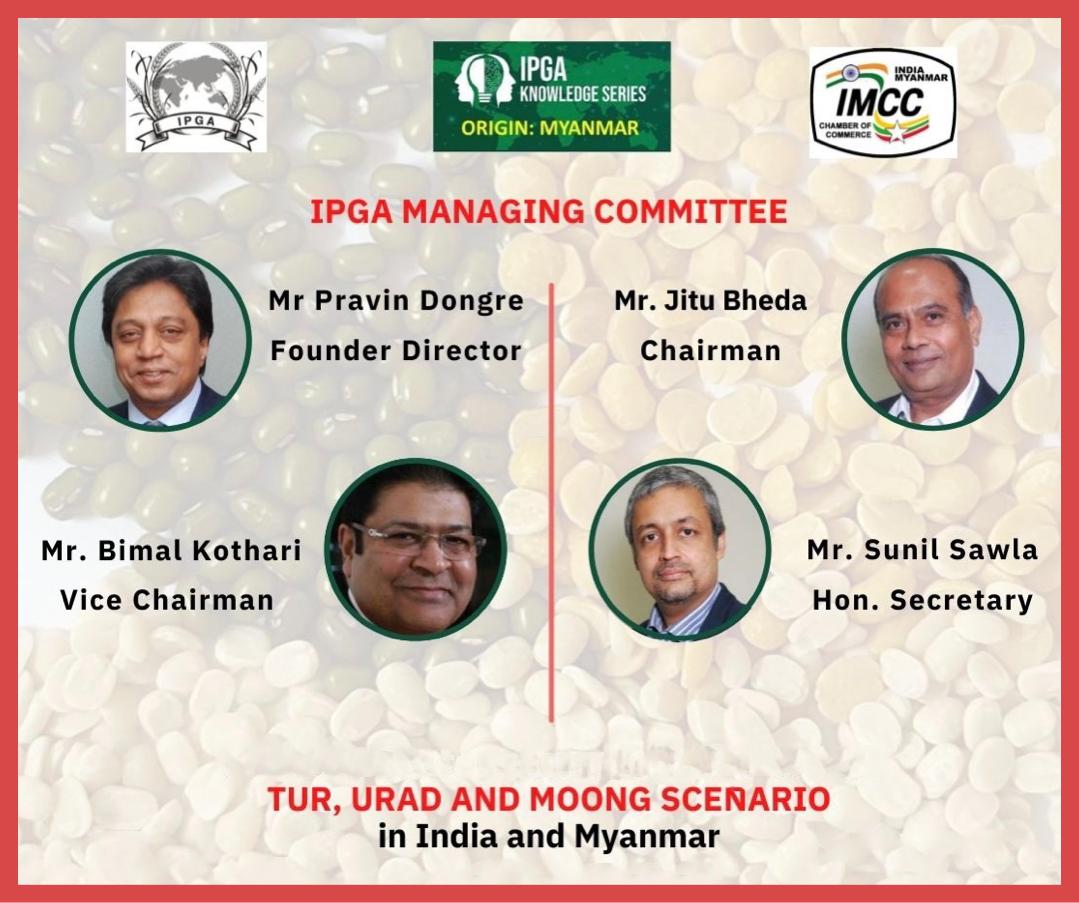by Suman Gupta
-
A focused discussion on key factors including production, demand-supply scenario, etc. of Tur, Urad and Moong in India & Myanmar
-
Smt. Nidhi Khare (I.A.S.), Addl. Secretary – Dept. of Consumer Affairs, Ministry of Consumer Affairs, Food and Public Distribution, Government of India was Chief Guest at the webinar.
-
H. E. Shri Saurabh Kumar, Hon’ble Ambassador of India to Myanmar was Special Speaker at the Webinar
-
Mr. B Krishna Murthy presented the Indian overview on Urad & Mr. Punit Bachhawat on Tur and Moong
-
Mr. Vatsal Lilani presented the Myanmar overview on Tur & Mr. Desh Ratna on Urad and Moong

